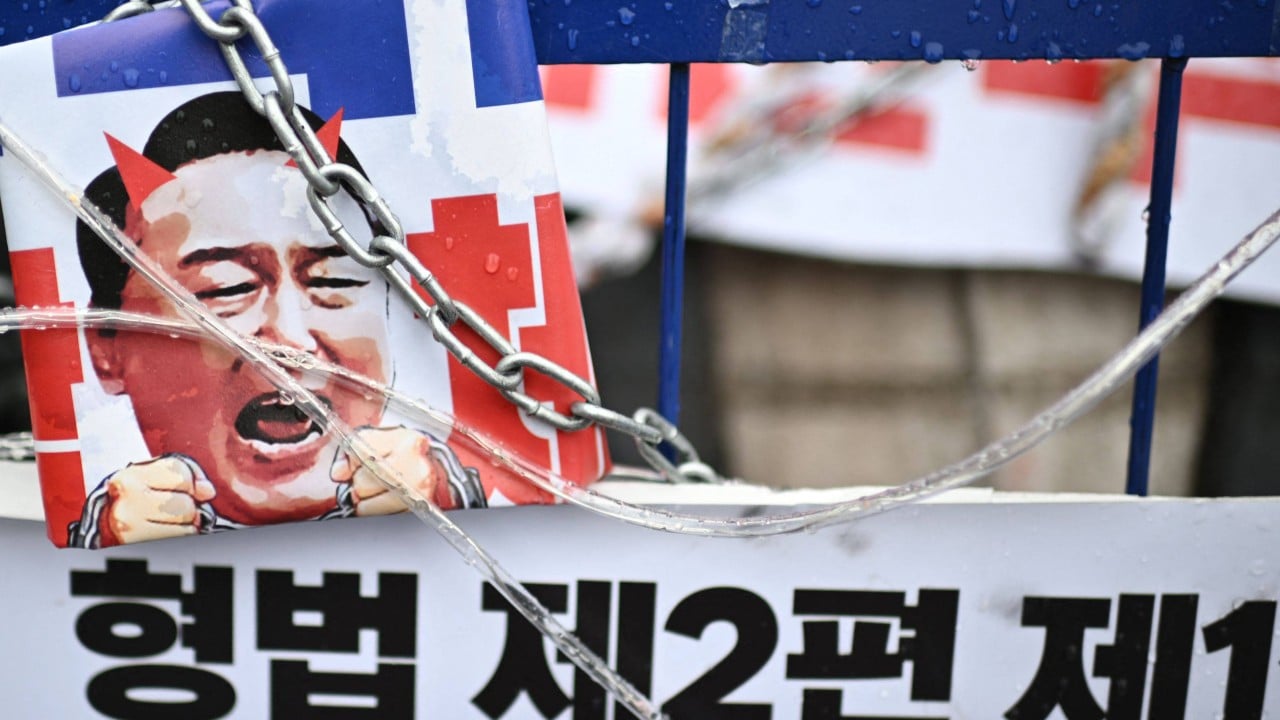Glacial winds cut through Hannam-dong, an upscale neighbourhood in central Seoul home to the official residence of impeached President Yoon Suk-yeol, where a single invisible boundary divides thousands of demonstrators braving sub-zero temperatures.
Advertisement
On one side are the supporters of the nationwide movement demanding Yoon’s removal from office. Their calls escalated dramatically after his shocking declaration of martial law on December 3.
On the other, Yoon’s supporters are standing firm, ready to shield him from authorities investigating charges of insurrection and abuse of power.
The Corruption Investigation Office for High-ranking Officials (CIO) made its first attempt to enter the compound on January 3, but was thwarted by about 200 of the president’s bodyguards. Officials insist they will return, with a larger force of 1,000 investigators and police officers, for a second attempt at arresting Yoon.
Talks have centred on holding security personnel legally accountable for blocking that initial raid, but presidential security chief Park Chong-jun resigned on Friday before he could face questioning.
Advertisement
Against this tense backdrop, the sprawling protests reveal an unmistakable generational divide.

